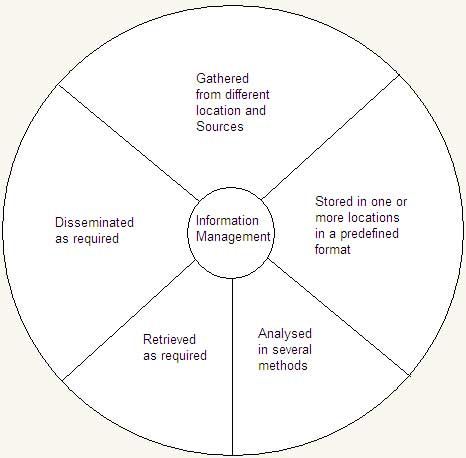Every manager today has to manage loads of information; some for the purpose of reporting and some for taking actionable decisions. The competitive environment that exists in today’s time makes this task of management even more challenging. Today’s managers have to work in an increasingly competitive globalize environment, in which the cost of a faulty decision in quite high. Hence, they rely more and more on data driven decision-making techniques rather than ‘gut feeling’. The focus is very much on gaining understanding about an issue before jumping to take a decision. MIS fills this gap.
It informs the managers about the issue so that they may take better decisions. Managers today, need real time information on a variety of issues ranging from the market to the competitors to production, etc., so that they can play their cards better in the market. Decisions have to be taken very fast and after analyzing a lot of data. Information is required for taking decisions and hence to deliver information fast and to ensure accurate analysis, information has to be managed. Information management is therefore a necessity in modern businesses. Information management however, is not done in an ad hoc fashion but in a systematic manner so that repeatability of information supply can be ensured. Information management primarily involves the following activities so that information is:
- Gathered from different locations and sources
- Stored in one or more locations in a predefined format
- Analyzed in several methods
- Retrieved as required
- Disseminated as required
-

Mechanisms are therefore required to ensure the above functions. In most cases, systems are developed to perform the above tasks and the system (collectively when they help management in its tasks) is called management information system.
Information management or management information system is only useful if it can supply information to management in timely and accurate manner. It is precisely due to these reasons4 that more and more Information Technology (IT) intervention is being used in modern information management. However, information management using information technology has itself transformed dramatically over the years. Information management and information technology go hand in hand because without information technology, information management would not be able to fulfill the two most important criteria of modern competitive management, i.e., speedy information supply and accurate information supply to management for decision-making. The modern market condition is such that use of IT has become inevitable in the field of IM. From being just a support function, it has become a key resource for gaining competitive advantage.
More and more corporations are investing in acquiring the latest Management Information System tools, like Enterprise (wide) Resource Planning (ERP), Customer Relationship Management (CRM), Knowledge Management (KM), Decision Support System (DSS), Business Intelligence (BI) suites, Data Warehouse (DW) facility as they are convinced of the benefits of such huge investments.
In order to understand the information management concepts, we have to first understand the systems concepts as information management cannot function in isolation. It has to function with systems. It is therefore necessary to understand the systems concepts to fully understand the information management concepts.
 Dinesh Thakur holds an B.C.A, MCDBA, MCSD certifications. Dinesh authors the hugely popular
Dinesh Thakur holds an B.C.A, MCDBA, MCSD certifications. Dinesh authors the hugely popular